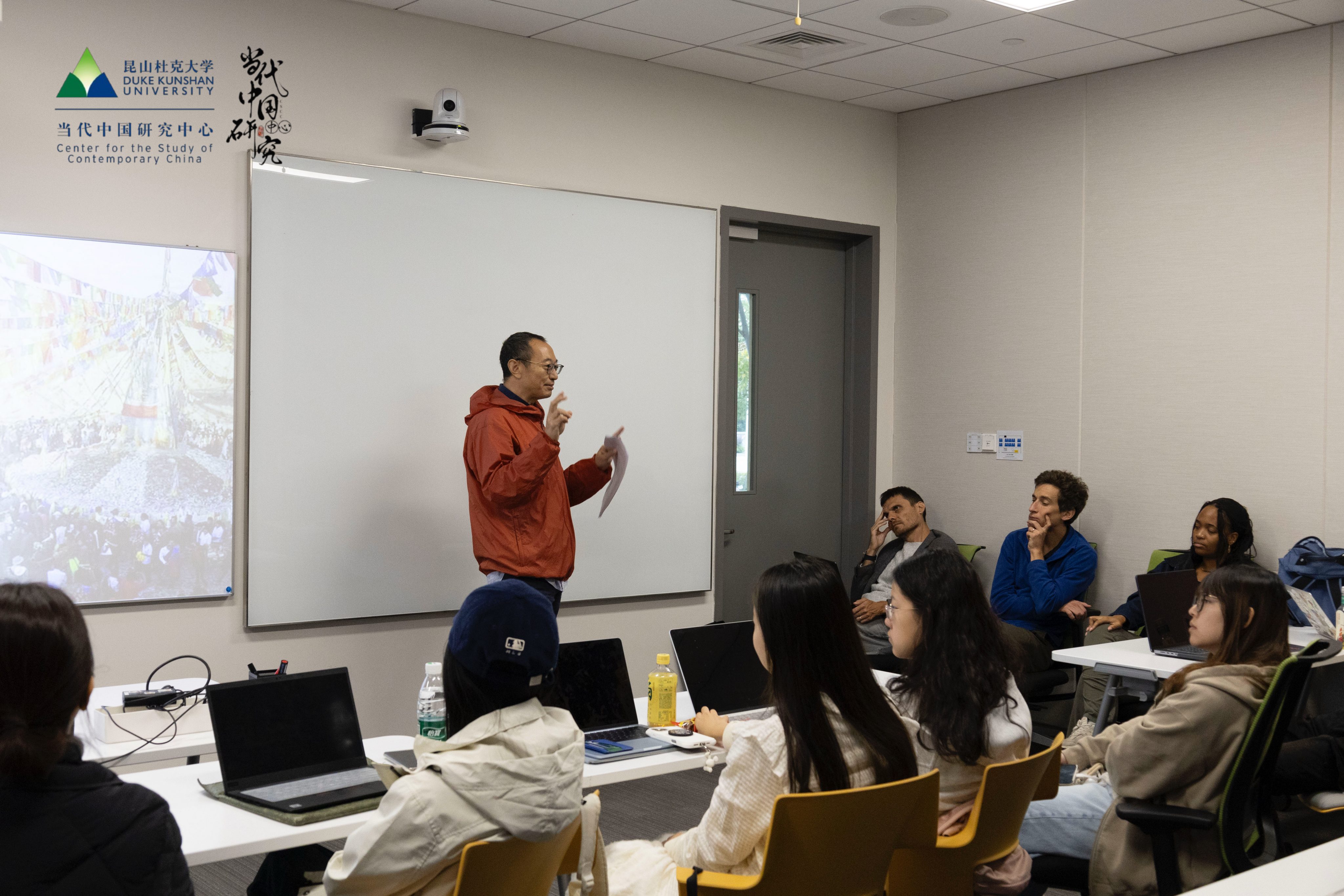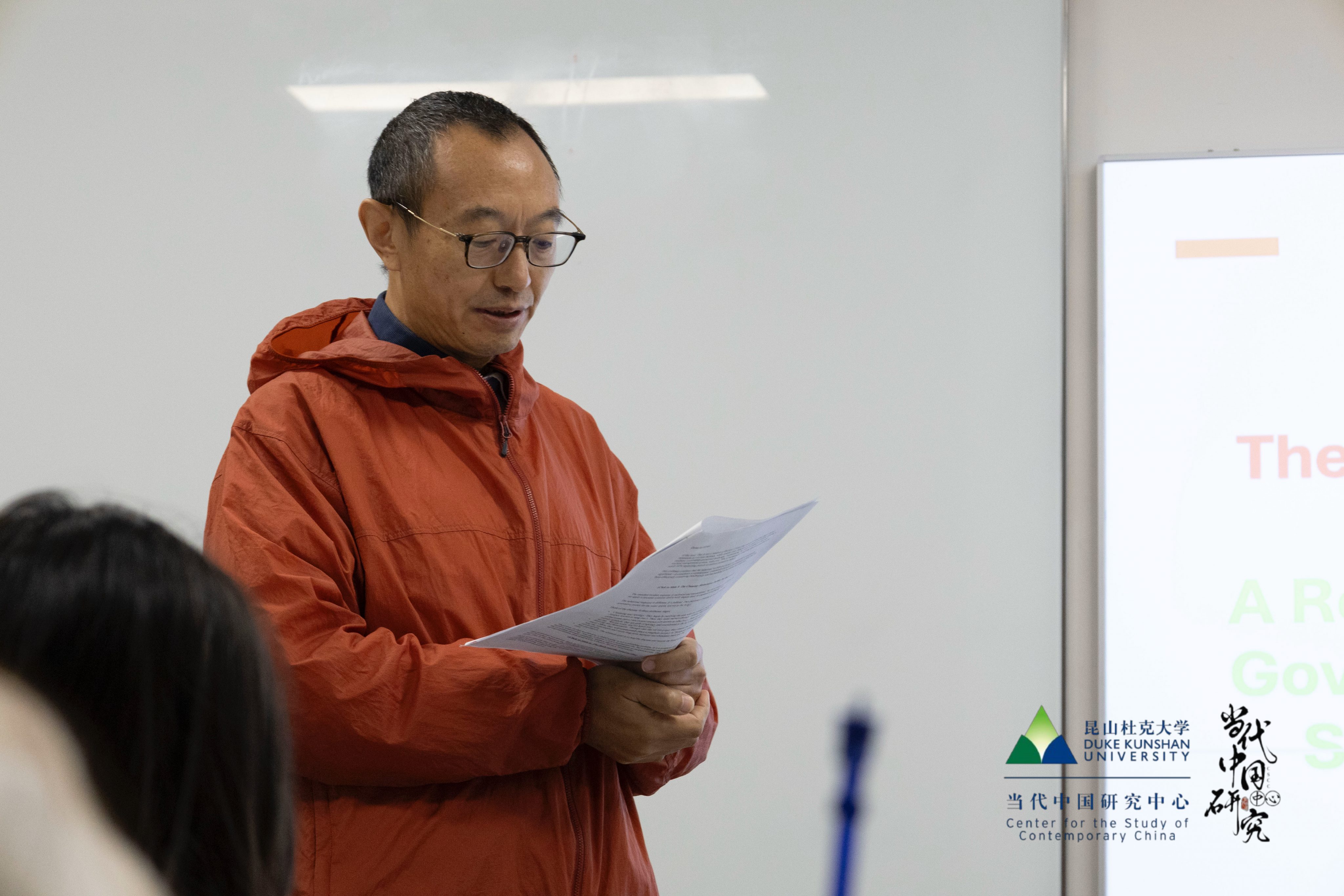By Zihan Chen, Class of 2026
On October 21, 2025, the Center for the Study of Contemporary China (CSCC) hosted Dr. Tenzin Jinba from the National University of Singapore for a thought-provoking talk that bridged religious studies, environmental studies, and anthropology. Bringing the audience’s attention to the Tibet Plateau, Dr. Jinba combined cross-disciplinary studies to discover the complex symbiotic interconnection between the human and natural world. He highlighted how these relationships can offer a new perspective on the connection between the human species and the environment.

The talk began with an attractive comparison on how the commercial-based collection of caterpillar fungus, often considered the source of health in Chinese medicine, has accumulated garbage and polluted the water source in natural reserves. This “story of crisis” opened a conversation on how indigenous knowledge systems offer novel and often overlooked insights that connect land, time, and community.

Dr. Jinba then examined ritual practices such as La Btse (mountain cairn offerings as a rational governance system) and Chusang (water purification rites bringing restorative justice for the land). Though these practices may not align with modern scientific frameworks, they embody a deep relational understanding of humans and nature. At the heart of this worldview lies the philosophy of “the body and the land as one,” emphasizing the inseparable bond between human beings and the landscape they inhabit.
In the latter part of the talk, Dr. Jinba introduced the concept of Sympoietic Dialogue through Relational Impact Assessment, a framework for analyzing human-nature relationships through interconnected principles. He also discussed how religious thought can contribute to ecological restoration and environmental ethics.

The lecture concluded with an engaging discussion among students and faculty. Participants reflected on the tension between development and preservation in Tibet’s fragile ecosystems and examined how linguistic and feminist approaches can reshape the way we describe and relate to nature. The conversation also touched on strategies for integrating indigenous studies with environmental anthropology in future research.
This event is part of the Guest Lecture Series of the Meanings, Identities, and Communities Cluster under the Center for the Study of Contemporary China.


